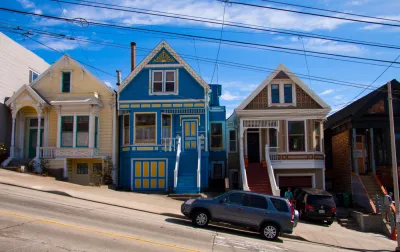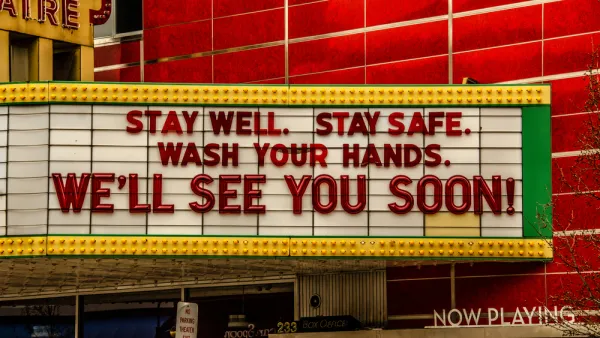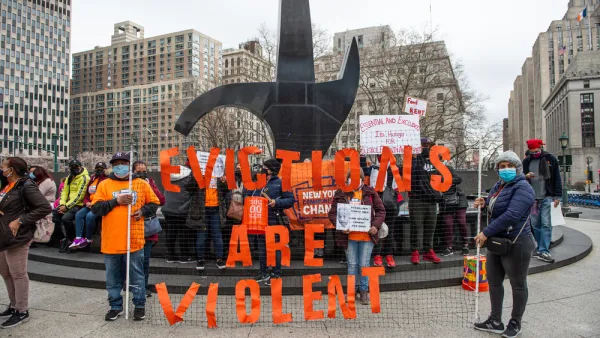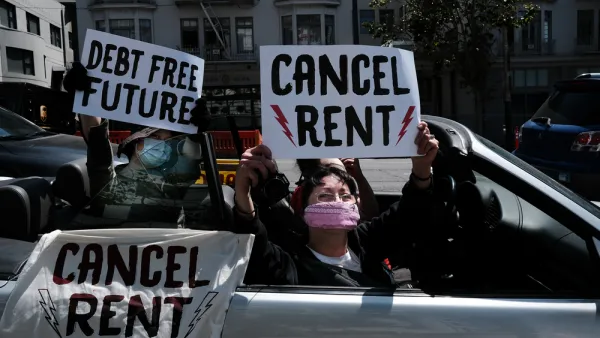Declining rents won't be a silver lining in the post-pandemic housing crisis.

Before the pandemic, millions of Americans were struggling to pay rent and home ownership was a distant dream for more and more young Americans, and nothing about the economic outcomes of the pandemic have improved the prospects of the housing market. According to an article by Jake Blumgart, the coronavirus pandemic is worsening the pre-existing housing crisis for Americans living in expensive cities.
Building could slow down in the medium term, as construction loans (risky bets in the best of times) become harder to come by. Unsubsidised affordable housing is often owned by small landlords, who are more likely to struggle during recessions, prompting flips to home ownership or sales to rental empires.
For more insight into the pandemic's effect on the pre-existing housing affordability crisis, Blumgart interviews New York Times reporter Conor Dougherty, who released a book, Golden Gates, on the causes of the housing crisis just prior to the outbreak.
One particularly insightful section of the interview discusses the different kinds of housing crisis facing different cities. According to Dougherty, "There are the really out of control, fast-growing, rich cities: the Bay Area, Seattle, New York. There are declining Detroits and Clevelands, usually manufacturing-centric cities. Then there are sprawling Sun Belt cities."
Much of the interview, like Doughery's book, focuses on cities in that first group. As for Dougherty's opinion about what some of these prosperous cities will look like after the pandemic, and whether the predictions of an urban exodus will come to fruition, Dougherty stops short of making a prediction, and instead raises several salient questions.
If unemployment remains over 12% in San Francisco, yes, rent is going to be a lot cheaper. But is that really the reality we're all looking for? If restaurants and bars that were key to the city's cultural life remain shut, but rent is cheaper, is that what everyone wants? I bet you when this is all over, we're going to find out the tech people left at a much lower rate than others. Yes, they can all work from home, but what do you think has a bigger impact on a city: a couple of companies telling people they can work from home or the total immolation of entire industries basically overnight?
FULL STORY: How the pandemic is magnifying structural problems in America's housing market

Analysis: Cybertruck Fatality Rate Far Exceeds That of Ford Pinto
The Tesla Cybertruck was recalled seven times last year.

National Parks Layoffs Will Cause Communities to Lose Billions
Thousands of essential park workers were laid off this week, just before the busy spring break season.

Retro-silient?: America’s First “Eco-burb,” The Woodlands Turns 50
A master-planned community north of Houston offers lessons on green infrastructure and resilient design, but falls short of its founder’s lofty affordability and walkability goals.

Test News Post 1
This is a summary

Analysis: Cybertruck Fatality Rate Far Exceeds That of Ford Pinto
The Tesla Cybertruck was recalled seven times last year.

Test News Headline 46
Test for the image on the front page.
Urban Design for Planners 1: Software Tools
This six-course series explores essential urban design concepts using open source software and equips planners with the tools they need to participate fully in the urban design process.
Planning for Universal Design
Learn the tools for implementing Universal Design in planning regulations.
EMC Planning Group, Inc.
Planetizen
Planetizen
Mpact (formerly Rail~Volution)
Great Falls Development Authority, Inc.
HUDs Office of Policy Development and Research
NYU Wagner Graduate School of Public Service




























